
Differences Between a Spanish Water Dog and a Portuguese Water Dog
The breed is closely aligned with other water dogs like the Irish Water Spaniel, Portuguese Water Dog and French Barbel. It is especially true that the Spanish Water Dog and the Portuguese Water Dog share some of the same ancestors. The two breeds are closely related.

Portuguese Water Dog Vs. Spanish Water Dog Compared
Physical Appearance. The Spanish Water Dog is a medium-sized dog breed that has a unique and distinct physical appearance. Their coat is one of the most notable features, as it is thick, curly, and wooly. The coat can range in color from black, white, and brown to various shades of gray. Unlike most breeds, the Spanish Water Dog does not shed.

Portuguese Water Dog vs Spanish Water Dog A Detailed Breed Comparison
The Spanish Water Dog vs Portuguese Water Dog — both originate from the Iberian Peninsular and share many other qualities. Yet there are a few subtle differences, which may be the dealbreaker for you. If you can't decide which breed is for you, we're comparing the Portuguese Water Dog vs Spanish Water Dog.We'll weigh up everything from size differences, to price comparisons and.

Portuguese Water Dog vs Spanish Water Dog A Detailed Breed Comparison
The AKC Standard calls him "an animal of spirited disposition, self-willed, brave, and very resistant to fatigue." Emotionally the Portuguese Water Dog is stable and sensible. Physically he is lively and athletic, poised for any activity. He loves to play and needs vigorous exercise: long walks, occasional runs, and swimming whenever possible.
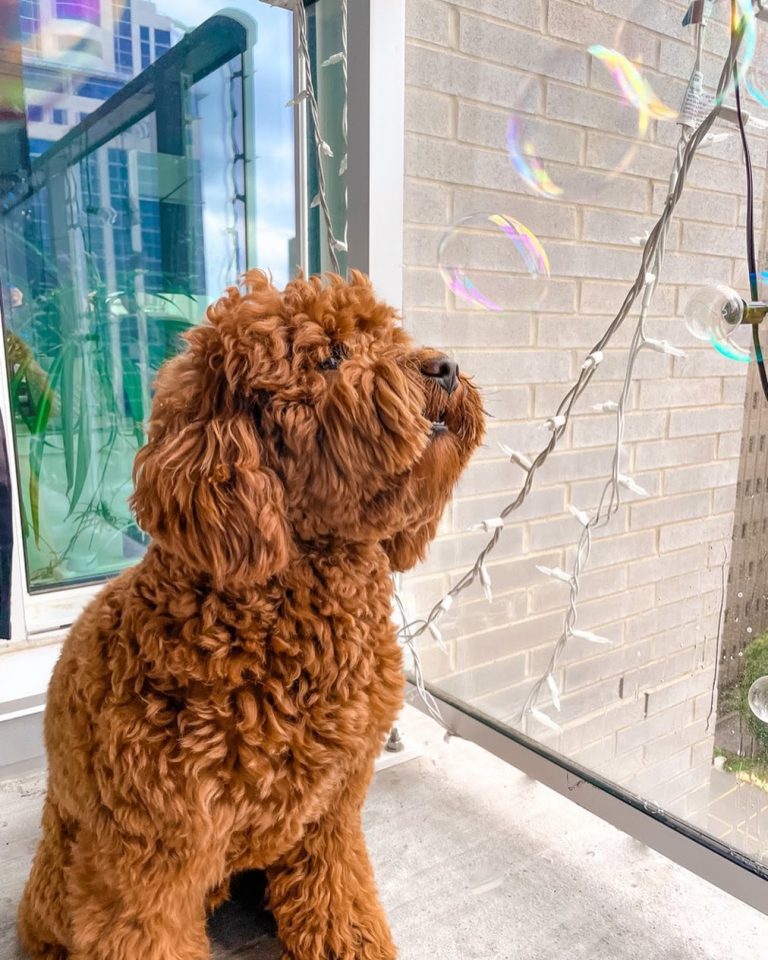
Portuguese Water Dog vs Spanish Water Dog A Detailed Breed Comparison
When it comes to high-energy breeds, the Portuguese Water Dog and Spanish Water Dog are at the top of the list. However, the Portuguese Water Dog is a relatively high-energy breed that needs a lot of exercises, while the Spanish Water Dog is more moderate in energy and can be content with less exercise. If you're looking for a couch potato.

Portuguese Water Dog vs Spanish Water Dog A Detailed Breed Comparison
Sharing is caring. Help our free service by spreading information about dog breeds. Link to this: Portuguese Water Dog vs Spanish Water Dog Comparison - Which dog is better Cao De Agua or Perro De Agua Español?

Spanish vs Portuguese Water Dog The Differences (With Pictures) Hepper
Height: the Portuguese water dog is usually taller than their Spanish relative. The difference in height being around 4" (10 cm) in males and 2" (5 cm) in females. Weight: the Portuguese Water Dog is also usually heavier than the Spanish Water Dog, thanks to their greater height and more developed musculature.
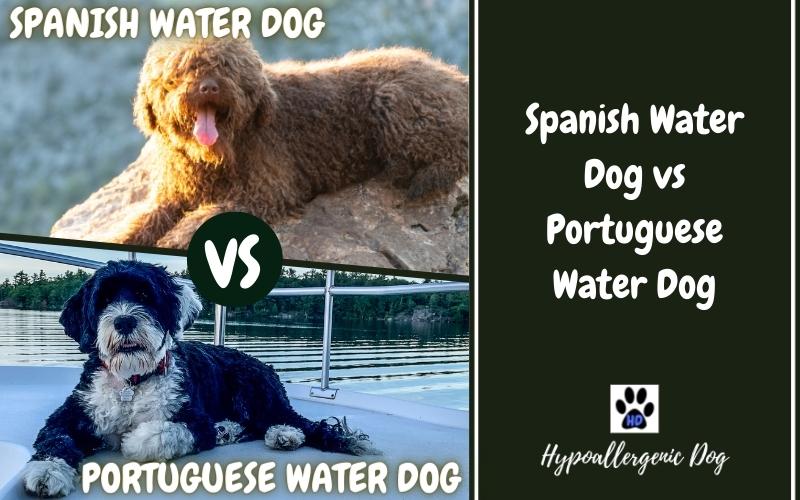
Spanish Water Dog vs Portuguese Water Dog
Fur: While Spanish only has long hair, Portuguese can have a long or short coat. In addition, the coat of the Spanish grows in cords, while that of the Portuguese forms more defined curls. Size: although by a few centimeters, the Portuguese water dog is larger than the Spanish. Weight: In addition to the larger size, the Portuguese water dog is.
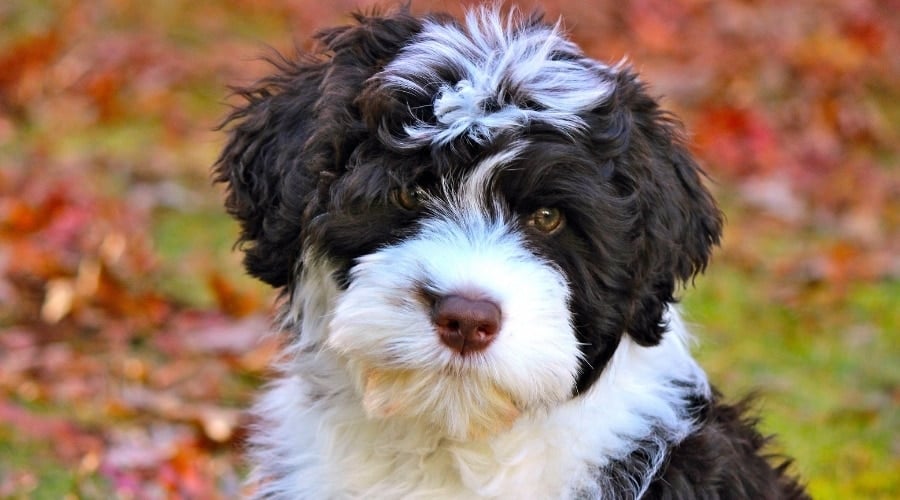
Rice Water For Dogs Cheapest Buying, Save 55 jlcatj.gob.mx
Characteristics of the Portuguese Water Dog. Portuguese water dogs have a friendly, excitable personality and enjoy being close to their owners. They also get along very well with kids and other pets, and they're always eager to play. Porties do have an independent streak, but with proper amounts of exercise and training, they can be well.
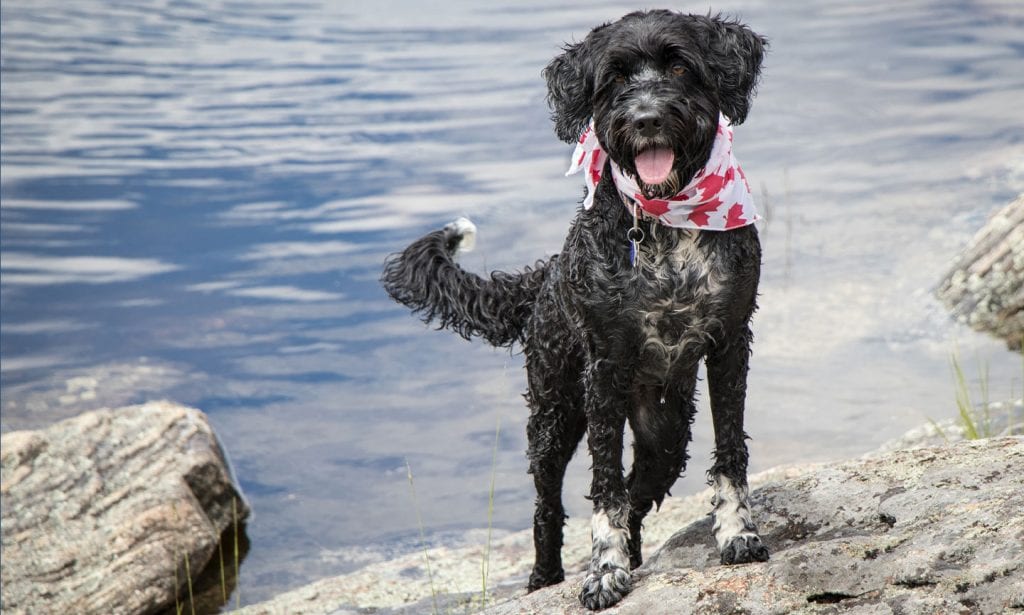
Portuguese Water Dog Breed Characteristics, Care & Photos BeChewy
Dog Grooming For Dummies. The best age to spay or neuter your Portuguese Water Dog is a bit different from the age recommended for many other breeds. Accepted wisdom is that you spay or neuter your dog at about six months of age. Portuguese Water Dogs, however, are slow maturing, and don't reach full growth until around 16 months of age.
/GettyImages-1285710682-b0236f4671d1428fa53fd5be8a37c521.jpg)
Portuguese Water Dog Dog Breed Characteristics & Care
About the Breed. The inexhaustible Spanish Water Dog is a dual-purpose breed whose hallmark is a coat of wooly curls. Used as both a herder and waterfowl retriever in his homeland, this rustic.

Spanish vs Portuguese Water Dog The Differences (With Pictures) Hepper
Portuguese Water Dog Temperament. Portuguese Water Dogs are quintessential working dogs who have successfully transitioned to family pets over the centuries. These proud seafarers hail from the southern coast of Portugal, where they swam out to nets to help Portuguese fishermen retrieve their catch. You don't need a boat, however, to befriend.

The Lagotto Romagnolo and Portuguese Water Dog are similar in spirit if
The Spanish Water dog comes from Andalusia, Spain, hence the breed name. This canine has been around for more than 800 years, but it was just newly recognized last 2015 by the American Kennel Club (AKC). This rough and ready dog is a multi-purpose companion as he can do different things such as herding, hunting, and water retrieving.

Portuguese Water Dog vs Spanish Water Dog A Detailed Breed Comparison
The Spanish Water Dog is closely related to the Portuguese Water Dog and is sometimes mistakenly identified as a Portuguese Water Dog. The Spanish Water Dog Club posits that the Portuguese Water Dog is probably an ancestor of the modern Spanish Water Dog. Although they have many shared characteristics, there are a few key distinctions between.
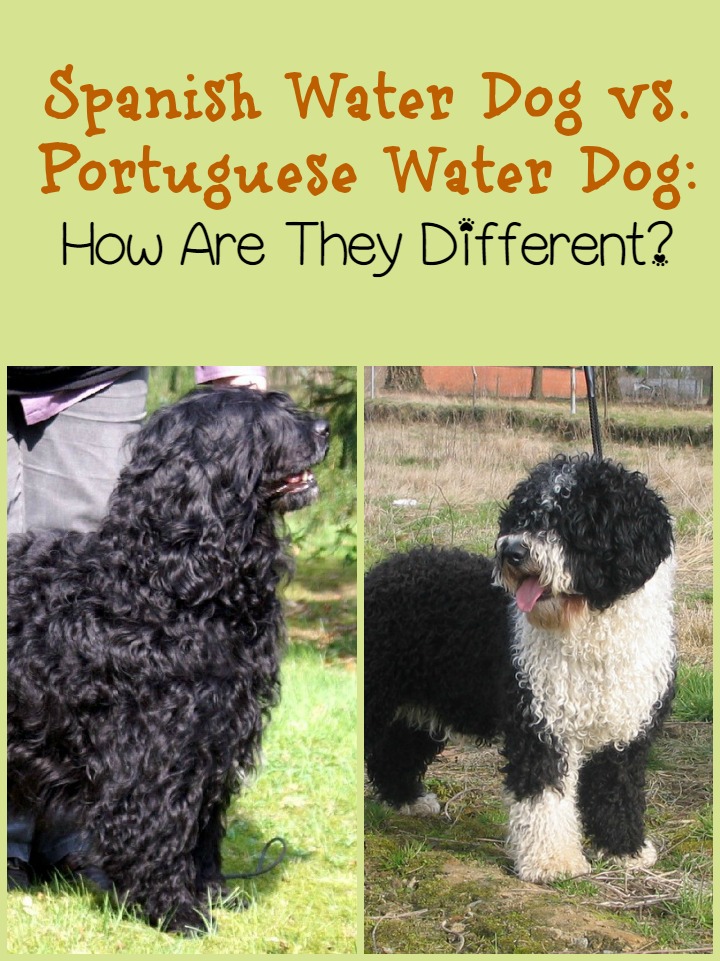
Spanish Water Dog vs. Portuguese Water Dog
Quick Summary Below are a few quick comparisons between the two breeds. Owner Experience - Both breeds are good choices for new or inexperienced owners, but the Spanish Water Dog is better suited for new owners.; Children - Both breeds are child friendly, but the Portuguese Water Dog is the most friendly between the breeds.; Grooming - The Spanish Water Dog is easier to groom than the.
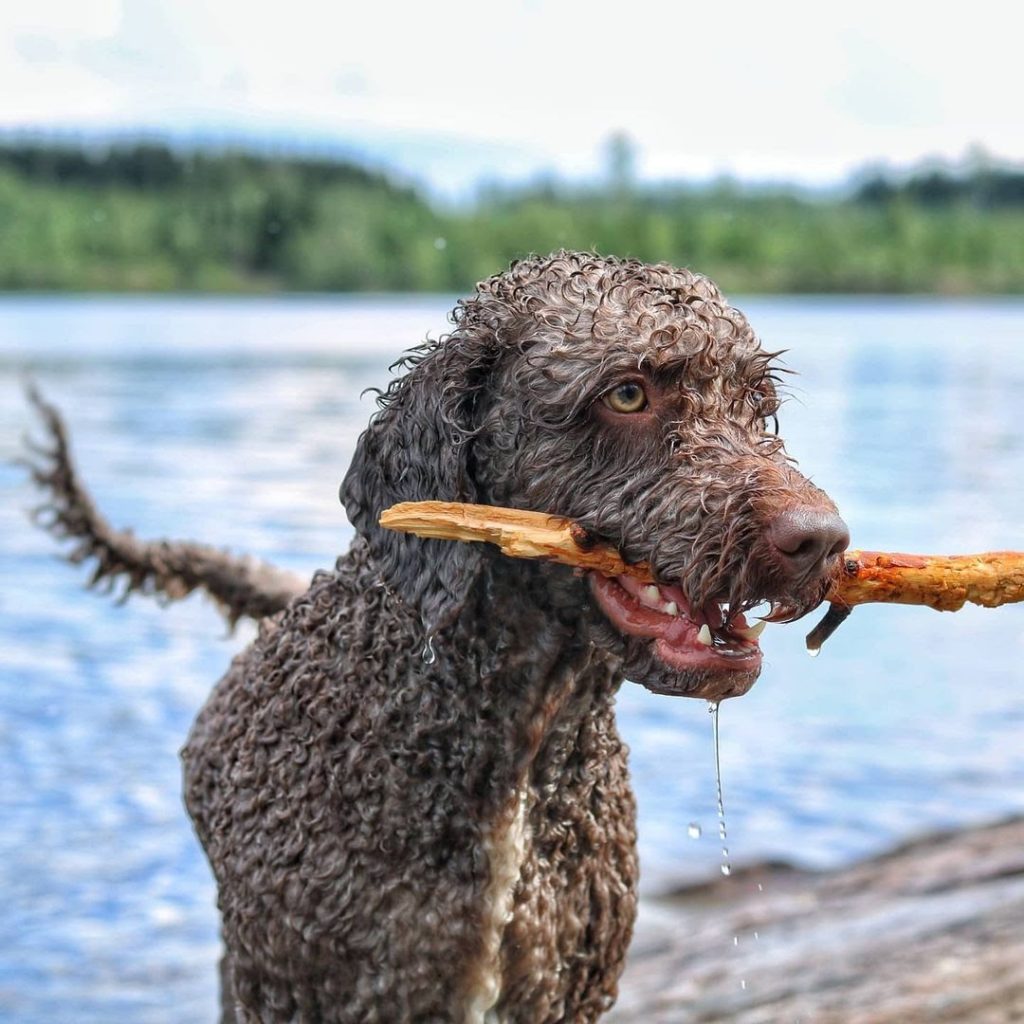
Portuguese Water Dog vs Spanish Water Dog A Detailed Breed Comparison
The Spanish Water Dog is independent, while the Portuguese Water Dog is more eager to please. This can influence your training style and preference. Ultimately, the decision should consider your lifestyle, preferences, and ability to meet the dog's needs. Consider factors such as their exercise requirements, grooming needs, and trainability.